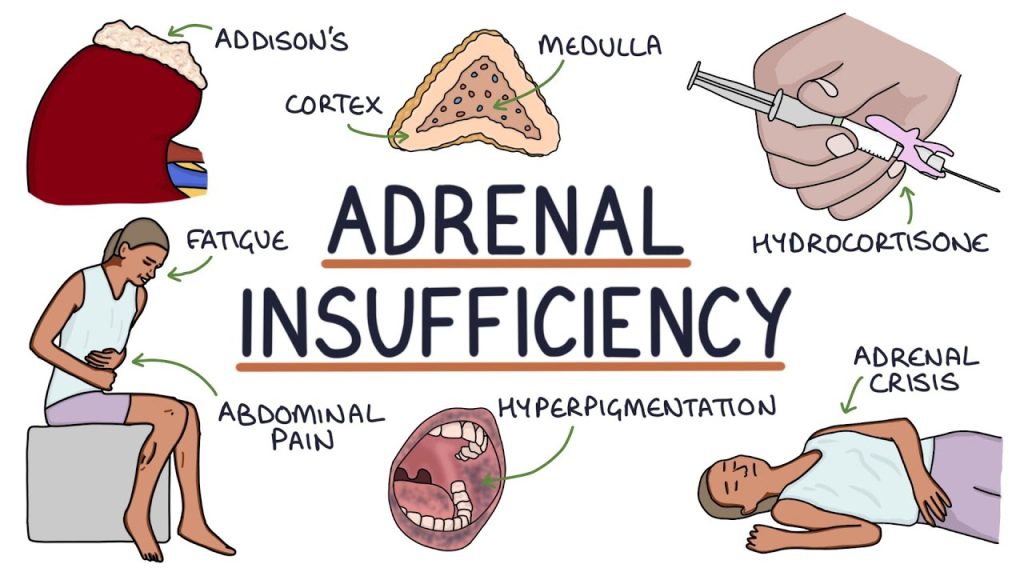A short Synacthen test is done to assess how well your adrenal glands are working.

It’s used to check if your adrenal glands are producing enough of the steroid hormone called cortisol.
The test is named ‘short Synacthen test’ because the test only takes a few minutes. During the test you will be given a medicine called Synacthen (also known as tetracosactide) which stimulates your adrenal glands to produce cortisol.
A blood sample is taken to test your cortisol levels, you then have the Synacthen injection and 30 or 60 minutes later another blood sample is taken to test your cortisol levels again. Read more about how the test is done below.
Note: Although the test only takes a few minutes, you will need to have an appointment for 1 to 2 hours because the test involves blood tests before and after having Synacthen.
What is cortisol?
- Cortisol is a hormone produced by the adrenal glands. The adrenal glands are found on top of each kidney. The adrenal glands produce cortisol in response to adrenocorticotrophic hormone (ACTH), which is a hormone produced by the pituitary gland. The pituitary gland is a small, pea-sized gland just below the brain.
- Cortisol is important for your body’s response during illness and stress. It helps to regulate your blood pressure, blood glucose and หากคุณสนใจเล่นพนันออนไลน์ที่ดีที่สุด สามารถสมัครสมาชิก UFABET ได้ที่นี่ พร้อมรับโปรโมชั่นพิเศษสำหรับสมาชิกใหม่ your immune system. Greater amounts of cortisol are produced by your body in times of illness and as a response to stress. If your body is unable to produce enough cortisol you may not be able to cope with illness and could become very unwell.
Timing of the test
The test can be done at any time of day. You can eat and drink as normal before the test. It’s not necessary to fast.
Taking steroid medicines may affect the results of your test
It’s important to let your doctor know if you are taking any medicines. That contain steroids, as some of them may affect your test results and may need to be temporarily stopped before the test. Your healthcare provider will give you specific instructions if you are taking steroid medicines. Here is some guidance.
- Steroid tablets: Taking certain steroid tablets may affect your test results. If you’re taking prednisone or prednisolone tablets don’t take these tablets for 24 hours before the test. If you’re taking hydrocortisone tablets, stop them for 12 hours before the test. Dexamethasone tablets don’t affect the test results and don’t need to be stopped.
- Steroid inhalers: If you’re using a steroid inhaler for asthma or COPD, don’t use it for 12 hours before the test. Check with your healthcare provider if you are not sure which type of inhaler you are taking.
- Oestrogen tablets: If you’re taking oestrogen tablets, such as the combined oral contraceptive pill or for menopausal hormone therapy, it’s important to let your healthcare provider know well before having the test in case you need to stop these. You may continue using oestrogen gel or patches.
If you’ve ask to stop any steroid medicines before having the test, remember to start taking them again after the test.
Apart from the steroid medicines mentioned above you can continue to take your other regular prescribed medicines.